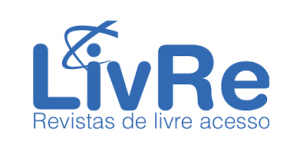português THE TEACHING OF LAW FOR ARTIFICIAL INTELLIGENCE
Abstract
The teaching of the law in Brazil enphazie dogmatism of laws rather than legal practice. Such a situation results in an apparent distance between reality of the facts and sense of fairness. Despite MEC's exercises to try to reduce this gap, even with them incluiding less legal content, we realize that there is a long way to reach the complexity of human relationships, from the text of the Law. In this abyssal scenario between reality and Law, where the teaching of Law in Brazil lacks effectiveness to reduce this distance, a new element is added, Artificial Intelligence that, in theory, tries to replicate how human beings think, learn and decide. In this way, this article aims to investigate the upward use of Artificial Intelligence and its effects on the legal system. Thus, the leading question of the research is focused on answering what are the possibilities, reflexes and risks that arise with the application of this new technology. In methodological terms, a systemic approach with a Luhmannian matrix will be adopted and the bibliographic research technique will be used. As a result of the study, it was found that the progress in the use of Artificial Intelligence in the legal universe is already underway. In addition, the debate sought to foresee the possibilities and implications of Artificial Intelligence in the legal world, because better than competing with it is to understand how it works and take advantage of the possibilities it can provide.
Downloads
Published
How to Cite
Issue
Section
License
Copyright (c) 2024 A REVISTA REFLEXÃO E CRÍTICA DO DIREITO utiliza uma licença Creative Commons - Atribuição-Não Comercial BY-NC 4.0 Internacional. Os autores dos trabalhos aprovados autorizam a revista a, após a publicação, ceder seu conteúdo para reprodução em indexadores de conteúdo, bibliotecas virtuais e similares. A revista se permite o uso dos trabalhos publicados para fins não comerciais, incluindo o direito de enviar o trabalho para bases de dados de acesso público.

This work is licensed under a Creative Commons Attribution-NonCommercial 4.0 International License.
A submissão de artigos à REVISTA REFLEXÃO E CRÍTICA DO DIREITO está vinculada à licença da Creative Commons CC BY-NC 4.0 internacional. Através desta licença, o autor mantém seus direitos autorais, mas permite, para fins não comerciais, que as pessoas possam copiar e distribuir o seu trabalho, reservando os respectivos créditos, nas condições especificadas.
Ao submeter artigos à REVISTA REFLEXÃO E CRÍTICA DO DIREITO o (a) autor (a) já autoriza sua publicação, em caso de aceitação, após o devido processo de avaliação, ciente da política de acesso livre do periódico.
O autor (a) declara ciência de que serão publicadas todas as informações consignadas na submissão, incluindo nome, afiliação, titulação e endereço eletrônico.
Da mesma forma, o interessado, ao submeter o trabalho no site da revista, DECLARA QUE É AUTOR (A) DO TRABALHO, BEM COMO DO VÍNCULO DAS DEMAIS PESSOAS TAMBÉM APONTADAS COMO AUTORAS, assumindo inteira responsabilidade por tais declarações.
O periódico não cobra nenhum tipo de taxa. Todas as submissões, avaliações e publicações são gratuitas, bem como o seu acesso é aberto e também gratuíto.







